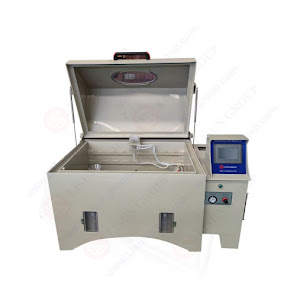LISUN salt spray test chamber is designed according to ASTM-B117
The ASTM-B117 standard is an internationally accepted benchmark for salt spray testing, and the LISUN salt spray test chamber was developed in accordance with this standard. This standard provides guidelines and requirements for conducting salt spray tests on materials, products, and components to evaluate their resistance to corrosion caused by exposure to salt spray or salt fog. The purpose of these tests is to determine how well a material, product, or component will hold up against exposure to salt spray or salt fog.
When performing salt
spray tests, the parameters that are to be used are those that are specified by
the ASTM-B117 standard. These circumstances include the temperature, humidity,
concentration of salt, and length of exposure. In addition to this, it offers
instructions for the production of test specimens or samples, as well as
techniques for assessing the test findings and performance criteria for
estimating the corrosion resistance of the materials that are being evaluated.
The ASTM-B117 standard
has been created to be met or exceeded by the LISUN salt spray test chamber.
This design ensures that the test results produced from the chamber are
dependable and accurate. To guarantee that the conditions of the test are
accurately replicated throughout the entirety of the procedure, the testing
chamber is outfitted with sophisticated systems for regulating the temperature
and humidity, as well as a system for producing and dispersing salt spray or
salt fog. These features are included.
LISUN is able to give its
clients with a testing solution that is high-quality, dependable, and
consistent since the company designed the salt spray test chamber according to
the ASTM-B117 standard. This allows LISUN to evaluate the corrosion resistance
of its customers' goods and materials.

.jpg)
Comments
Post a Comment